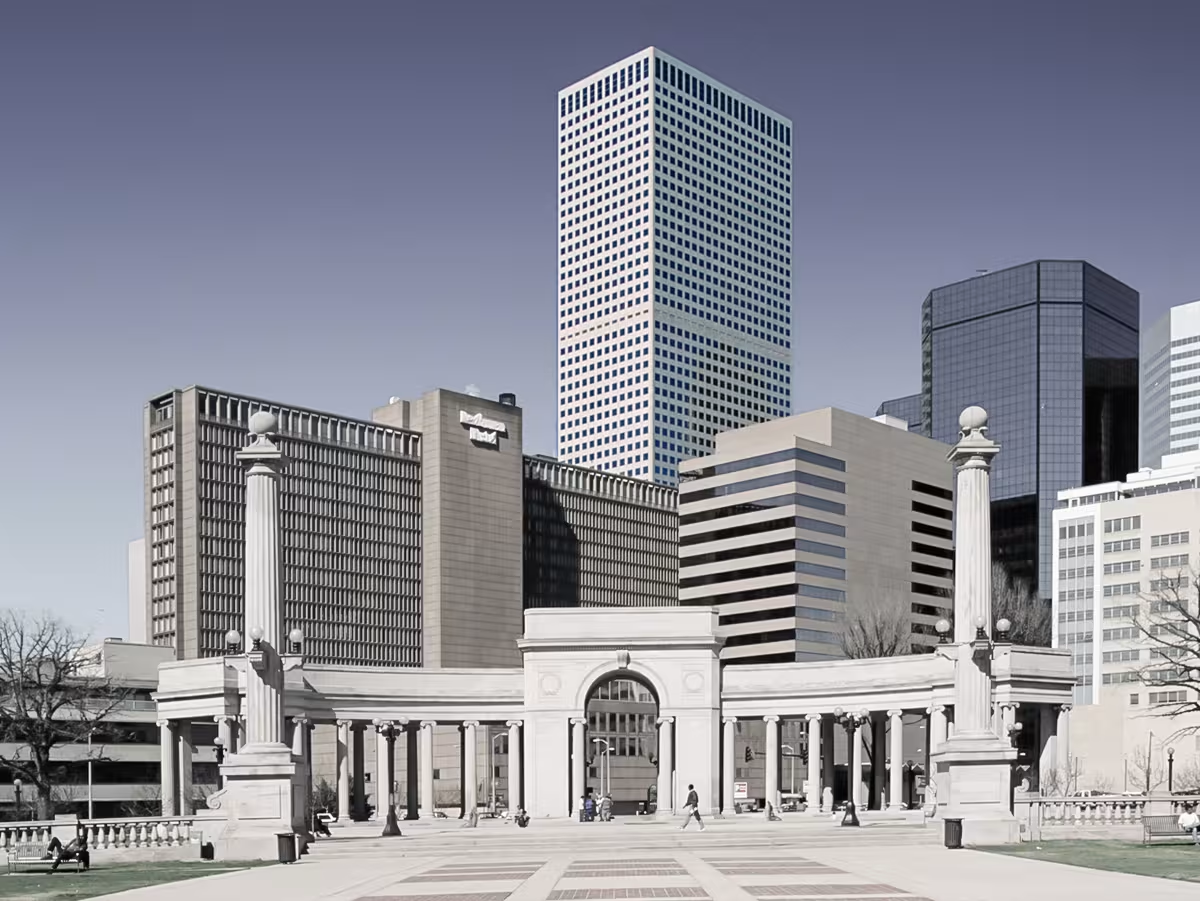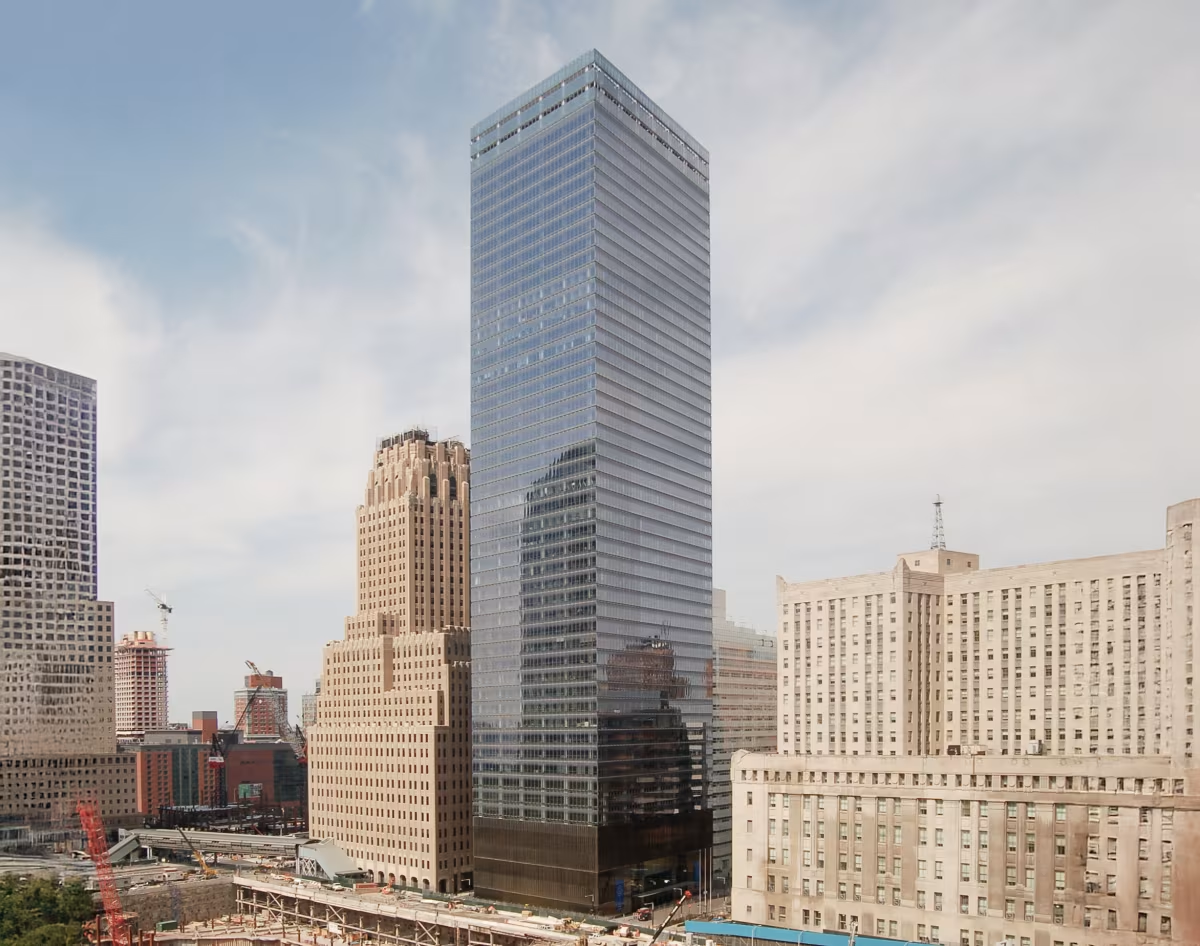Republic Plaza Building vs 7 World Trade Center


Comparing the Republic Plaza Building and the 7 World Trade Center is compelling because they were both designed by Skidmore, Owings & Merrill, yet they stand in different cities (Denver, CO and New York, NY), and were completed over two decades apart.
What this will allow us to see, is how the same firm's approach adapted to different places in different periods of time.
Height & Size
These two towers present an interesting contrast in their proportions. The 7 World Trade Center rises higher at 741ft (226m), while the Republic Plaza Building reaches 715ft (218m). However, the Republic Plaza Building accommodates more floors with 56 levels above ground, compared to 51 floors in the 7 World Trade Center.
This suggests different approaches to interior space design. The 7 World Trade Center has an average floor-to-floor height of approximately 4.4m, while the Republic Plaza Building has more compact floors averaging around 3.9m each. The taller building's more generous floor heights might indicate grander interior spaces, higher ceilings, or different programmatic requirements.
These different proportions likely reflect the specific needs each building was designed to serve, whether driven by zoning regulations, client requirements, or the intended use of the spaces within. The contrast shows how architects can achieve different spatial experiences even when working with similar overall building scales.
Architectural Style
The Republic Plaza Building was designed in the Modern style, while the 7 World Trade Center reflects the principles of Contemporary.
The Republic Plaza Building represents a late expression of the Modern, a style already in decline in 1984 when it was completed. By contrast, the 7 World Trade Center followed the then mainstream Contemporary, embodying the dominant architectural direction of its time.
With 22 years between them, the comparison also reflects how quickly architectural priorities can shift from one dominant language to another.
Uses
Both the Republic Plaza Building and the 7 World Trade Center were designed to serve as commercial towers, and that has remained their main use since their completion, serving similar roles in the urban fabric.
Structure & Facade
The two buildings opted for different structural and facade solutions.
The Republic Plaza Building uses a Framed Tube In Tube system, which combines a strong central core with a perimeter tube of columns, while the 7 World Trade Center uses a Frame system, that relies on a regular grid of columns and beams to sustain its weight.
And when it came to the facade, the Modular went with a Modular facade, which employs prefabricated panels, often mixing solid surfaces with smaller windows, while the 7 World Trade Center opted for a Curtain Wall facade, that uses a lightweight glass curtain wall hung from the structure.
| Republic Plaza Building | 7 World Trade Center | |
|---|---|---|
| Skidmore, Owings & Merrill | Architect | Skidmore, Owings & Merrill |
| 1982 | Construction Started | 2002 |
| 1984 | Year Completed | 2006 |
| Modern | Architectural Style | Contemporary |
| Commercial | Current Use | Commercial |
| 56 | Floors Above Ground | 51 |
| 218 m | Height (m) | 226 m |
| 114745 | Built-up Area (m²) | 156181 |
| Framed Tube In Tube | Structure Type | Frame |
| Reinforced Concrete | Vertical Structure Material | Steel |
| Reinforced Concrete | Horizontal Structure Material | Poured Concrete Over Metal Decking |
| Yes | Facade Structural? | No |
| Granite, Glass | Main Facade Material | Glass |
| PCL Construction Services | Main Contractor | Tishman Construction |
| Brookfield Properties | Developer | Silverstein Properties |
| Otis Elevator Company | Elevator Company | OTIS Elevators |
| WSP Flack + Kurtz | MEP Engineer | Jaros Baum & Bolles |
| Skidmore, Owings & Merrill LLP | Structural Engineer | WSP Cantor Seinuk |
| Enclos Corp. | Facade Consultant | Permasteelisa Group |
| CO | State | NY |
| Denver | City | New York |
| 330 17th Street | Address | 250 Greenwich Street |